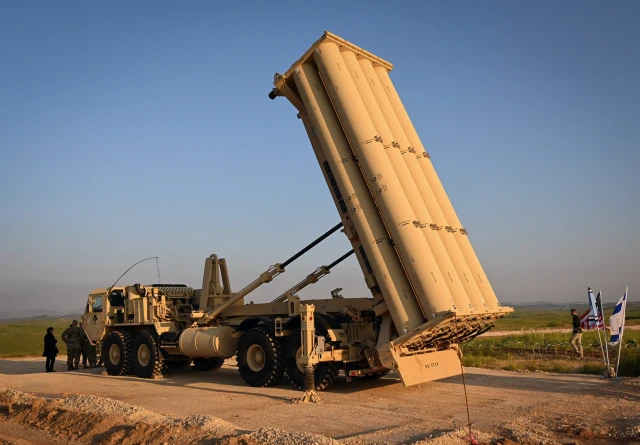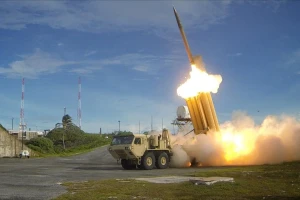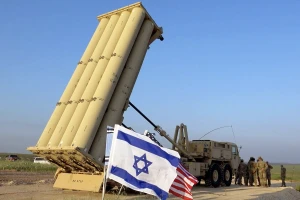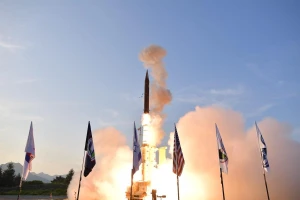Pentagon requests billions to replace missile interceptors depleted in Israel-Iran war

The Pentagon has requested $3.5 billion in emergency funding to replenish missile interceptors depleted during the Israel-Iran war, Bloomberg announced on Wednesday.
U.S. officials have warned that inventories are running low and current production cannot keep pace with demand, raising concerns in Washington about the ability to defend U.S. forces against ongoing threats in the Middle East, according to the report.
“The stockpiles are running low. We need more – and fast,” a former senior officer said, according to Bloomberg as cited by Ynet News.
In July, CNN reported that the U.S. used around 25% of its THAAD missile interceptors while defending Israeli airspace against Iranian missiles.
Speaking on condition of anonymity, a U.S. missile defense expert told CNN that “the level of expenditure here in defense of Israel is significant,” and continued, “This is not the sort of thing that the US can afford to continue to do on and on.”
“It was a major commitment to our Israeli ally, but missile defense interceptor capacity is definitely a concern, and THAAD is a very scarce resource,” the defense expert said.
In June, Iran launched more than 500 ballistic missiles at Israel. Although most were intercepted, roughly 10–15% penetrated Israeli and U.S. air defenses, killing around 30 civilians and causing major damage in several cities. During the conflict, over 100 U.S. THAAD interceptors were used, yet only 11 were produced last year, with just 12 expected in 2025 – highlighting a severe production gap.
Looking ahead, the Pentagon is requesting $1 billion for SM-3 interceptors, used by U.S. Navy destroyers during Iran’s April 2024 missile and drone attack on Israel. The request also covers replenishing THAAD interceptor stockpiles, along with funding for special flight missions, naval and radar maintenance, and munitions transport.
The new emergency request reportedly does not include $4 billion in military equipment that United States has supplied Israel, since the Hamas Oct. 7 attack in 2023.
In October 2024, former U.S. Secretary of Defense Lloyd Austin told then-Israeli Defense Minister Yoav Gallant that Washington intended to provide a THAAD anti-missile system to “help bolster Israel's air defenses following Iran's unprecedented attacks against Israel on April 13 and again on October 1.”
The U.S. THAAD missile battery system also boosted Israel’s aerial defense capabilities during the Houthi missile attacks this past April.
Israel’s multi-layer aerial defense system – considered among the most advanced in the world – has been under heavy strain from nearly two years of missile attacks by Iran and its proxies. The current network includes the Iron Dome for short-range rockets, David’s Sling for medium-range threats, and the Arrow defense system for long-range ballistic missiles from Iran and its proxy in Yemen, the Houthis.

The All Israel News Staff is a team of journalists in Israel.
You might also like to read this:










